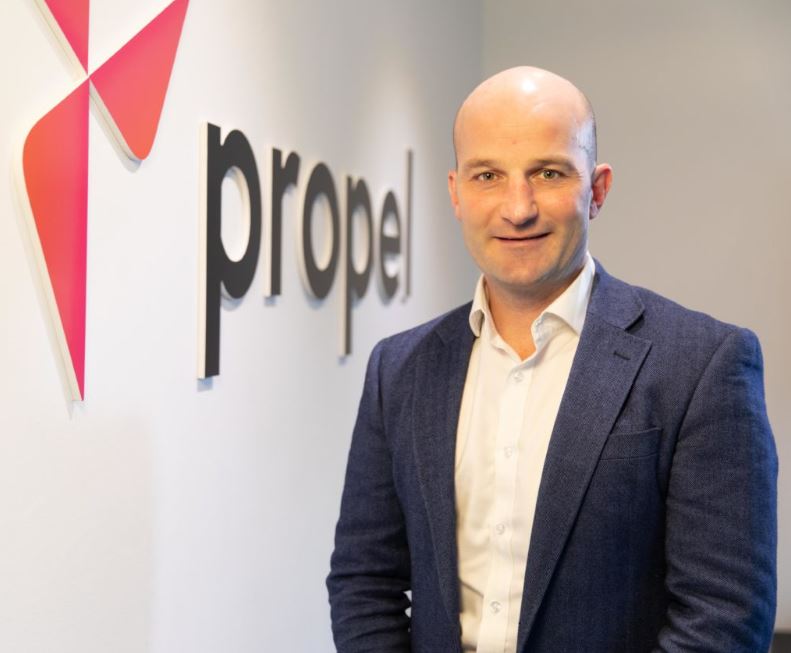Jon Maycock, Commercial Director, Propel Finance
When it comes to sourcing funding to acquire assets for your company, the end goal is to get the best business outcome. Whether that’s low repayments, flexibility, expertise or the ability to secure funding immediately, it’s important to consider all aspects of a finance solution before making a final decision.
Specific and dedicated finance is always better in practice. It’s tailor-made to a customer’s needs, helping business owners make more informed decisions when it comes to their company finances and assets. It can even be tax advantageous. Most importantly, expert finance companies don’t try and fit customer needs around a facility: they fit the facility’s needs around the customer.
However, how can a business know whether to go down this route – or simply apply for a traditional loan?
Potential pitfalls of a loan
Typically, loans come with a long list of terms and conditions that need to be addressed, such as the provision of quarterly management information. Alongside the huge administrative effort this invariably requires, there’s the question of flexibility; if the business isn’t using all the funds made available, it will still have to pay interest on them. With a loan, businesses are also often required to take out personal guarantees, a key consideration when compared to other forms of finance.
As such, it’s worth exploring the benefits of the asset finance route and how it can help small business owners secure the right kind of funding to meet their needs.
Conserving capital
Each and every asset being utilised by a business demands a payback from either generating additional income or by creating extra savings and efficiencies. Asset finance allows businesses to use the latest and most efficient assets available. By offering low-deposit funding, asset finance can help businesses conserve the working capital they otherwise would have invested upfront, allowing scope to invest in other areas of the business. Flexible repayments can be matched to budgets, trading cycles and seasonality. Fixed interest rates across the whole term ensure certainty of budgeting, vital in times of constant change. Importantly, by using specific finance related to the assets concerned, existing credit lines, such as bank overdrafts and loans, remain untouched and are still available for business use.
Additionally, for eventualities where supplementary working capital is needed, there is also the option to refinance existing assets to generate required funds.
The security aspect of asset finance is the key differentiator when it comes to funding options. Unlike a traditional loan, with asset finance, the equipment itself acts as the security against the loan – meaning that personal collateral, such as directors’ houses, are not at risk if the business is unable to make repayments.
Lease over loan
Companies also have the opportunity to lease assets rather than purchase them. This means assets can generate income whilst they are being used, so can effectively start paying for themselves straight away.
As a by-product, leasing eliminates the burden of asset disposal. If the asset belongs to an asset finance provider, this puts the responsibility for disposal in the hands of a third party, with the term of agreement tailored to the anticipated useful life of the asset. And with the potential for rapid rates of corporate change and innovation, leasing provides businesses with the ability to upgrade their assets easily, without the difficulties or expense of changing a loan.
In essence, opting to lease resources removes any ongoing responsibility for funding assets once they have come to the end of their useful economic life.
The benefits of specialist finance
According to the Finance & Leasing Association (FLA), asset finance in new business (primarily leasing and hire purchase) grew by 6% in 2019 to reach a record annual total of £35.7 billion.
Largely, the reason behind this is the specialist sector knowledge and proficiency of asset finance houses. With an in-depth working understanding of the assets themselves, asset financers can use their expert understanding of asset values to provide specialist evaluations; and with widespread industry knowledge, can secure their customers preferential deals from established vendors.
As such, asset financing is about much more than just the cash. By capitalising on the advantages of a relationship-based funding approach, asset financiers can partner with small businesses to boost efficiency, improve performance and secure the ongoing viability of their enterprise.







